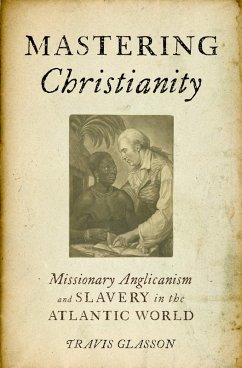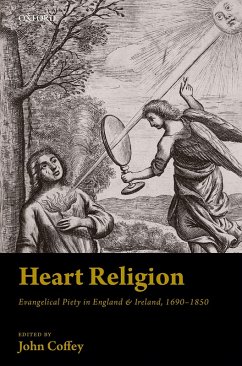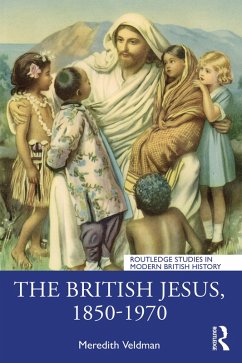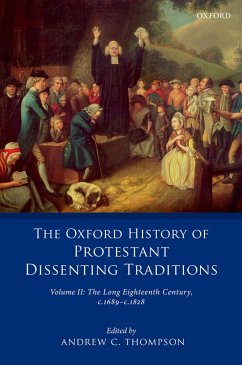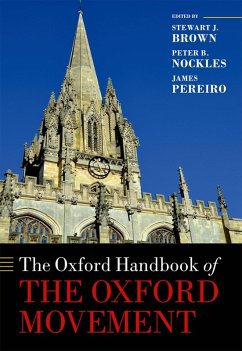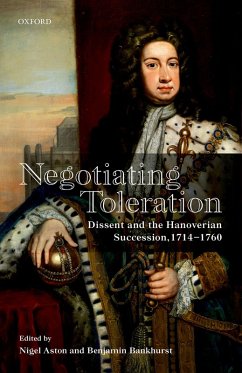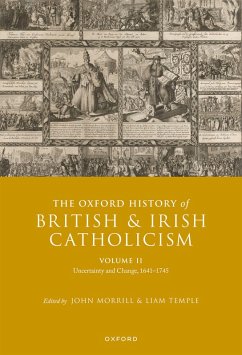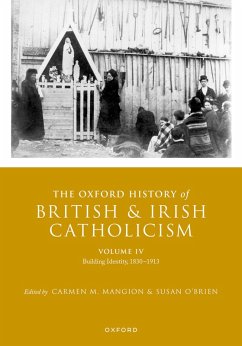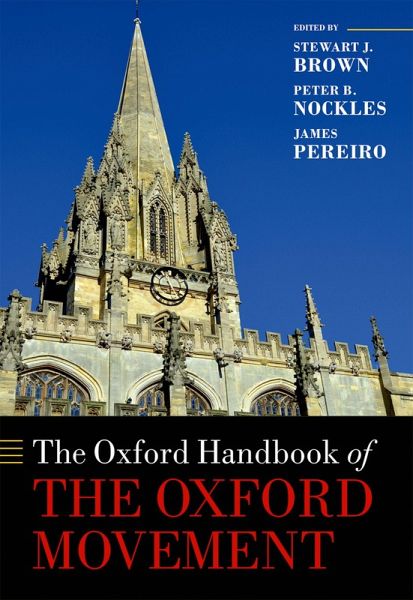
The Oxford Handbook of the Oxford Movement (eBook, PDF)

PAYBACK Punkte
29 °P sammeln!
The Oxford Handbook of the Oxford Movement reflects the rich and diverse nature of scholarship on the Oxford Movement and provides pointers to further study and new lines of enquiry. Part I considers the origins and historical context of the Oxford Movement. These chapters include studies of the legacy of the seventeenth-century 'Caroline Divines' and of the nature and influence of the eighteenth and early nineteenth-century High Church movement within the Church of England. Part II focuses on the beginnings and early years of the Oxford Movement, paying particular attention to the people, the...
The Oxford Handbook of the Oxford Movement reflects the rich and diverse nature of scholarship on the Oxford Movement and provides pointers to further study and new lines of enquiry. Part I considers the origins and historical context of the Oxford Movement. These chapters include studies of the legacy of the seventeenth-century 'Caroline Divines' and of the nature and influence of the eighteenth and early nineteenth-century High Church movement within the Church of England. Part II focuses on the beginnings and early years of the Oxford Movement, paying particular attention to the people, the distinctive Oxford context, and the ecclesiastical controversies that inspired the birth of the Movement and its early intellectual and religious expressions. In Part III the theme shifts from early history of the Oxford Movement to its distinctive theological developments. This section analyses Tractarian views of religious knowledge and the notion of 'ethos'; the distinctive Tractarian views of tradition and development; and Tractarian ecclesiology, including ideas of the via media and the 'branch theory' of the Church. The years of crisis for the Oxford Movement between 1841 and 1845, including John Henry Newman's departure from the Church of England, are covered in Part IV. Part V then proceeds to a consideration of the broader cultural expressions and influences of the Oxford Movement. Part VI focuses on the world outside England and examines the profound impact of the Oxford Movement on Churches beyond the English heartland, as well as on the formation of a world-wide Anglicanism. In Part VII, the contributors show how the Oxford Movement remained a vital force in the twentieth century, finding expression in the Anglo-Catholic Congresses and in the Prayer Book Controversy of the 1920s within the Church of England. The Handbook draws to a close, in Part VIII, with a set of more generalised reflections on the impact of the Oxford Movement, including chapters on the judgement of the converts to Roman Catholicism over the Movement's loss of its original character, on the spiritual life and efforts of those who remained within the Anglican Church to keep Tractarian ideas alive, on the engagement of the Movement with Liberal Protestantism and Liberal Catholicism, and on the often contentious historiography of the Oxford Movement which continued to be a source of church party division as late as the centennial commemorations of the Movement in 1933. An 'Afterword' chapter assesses the continuing influence of the Oxford Movement in the world Anglican Communion today, with special references to some of the conflicts and controversies that have shaken Anglicanism since the 1960s.
Dieser Download kann aus rechtlichen Gründen nur mit Rechnungsadresse in A, B, BG, CY, CZ, D, DK, EW, E, FIN, F, GR, HR, H, IRL, I, LT, L, LR, M, NL, PL, P, R, S, SLO, SK ausgeliefert werden.




